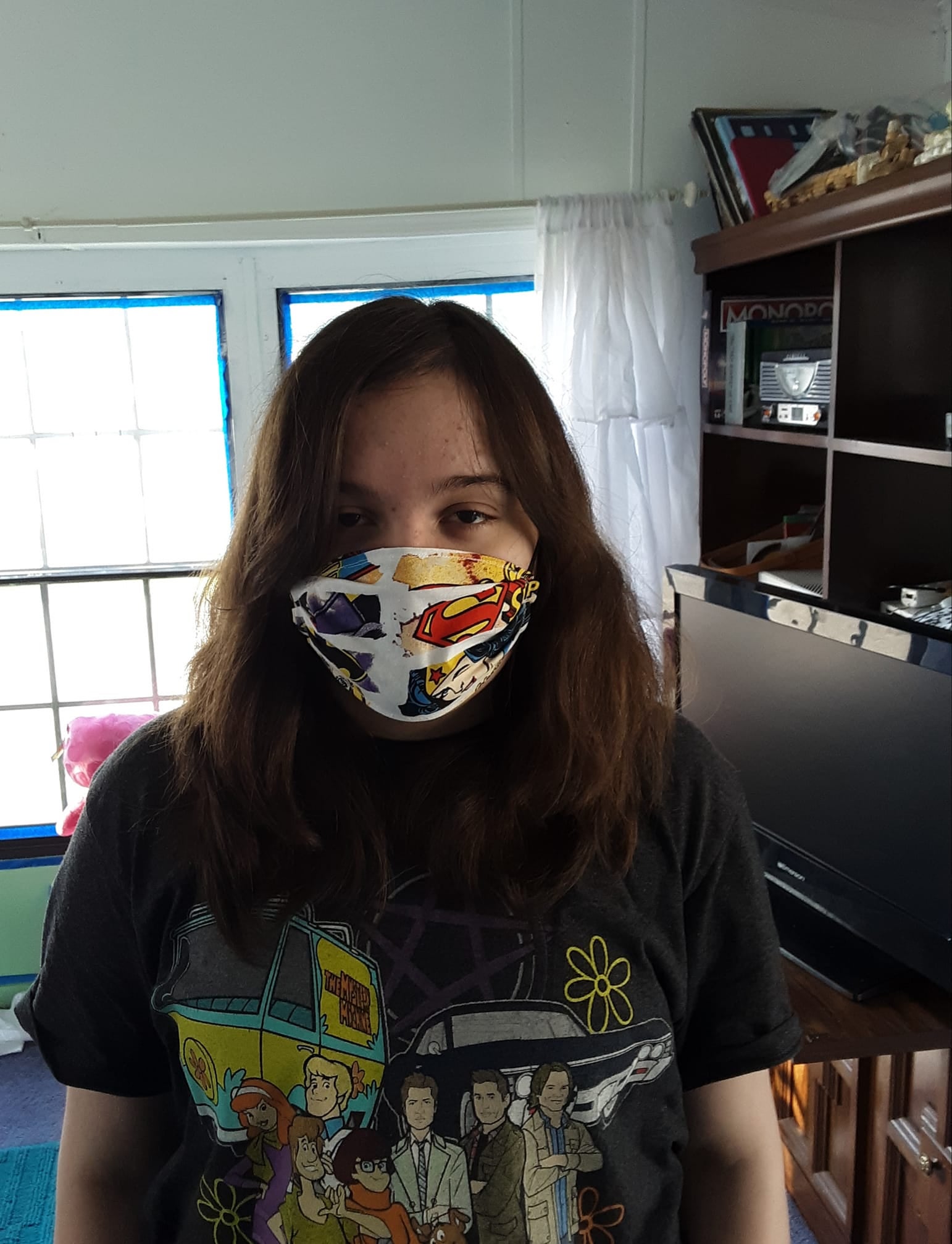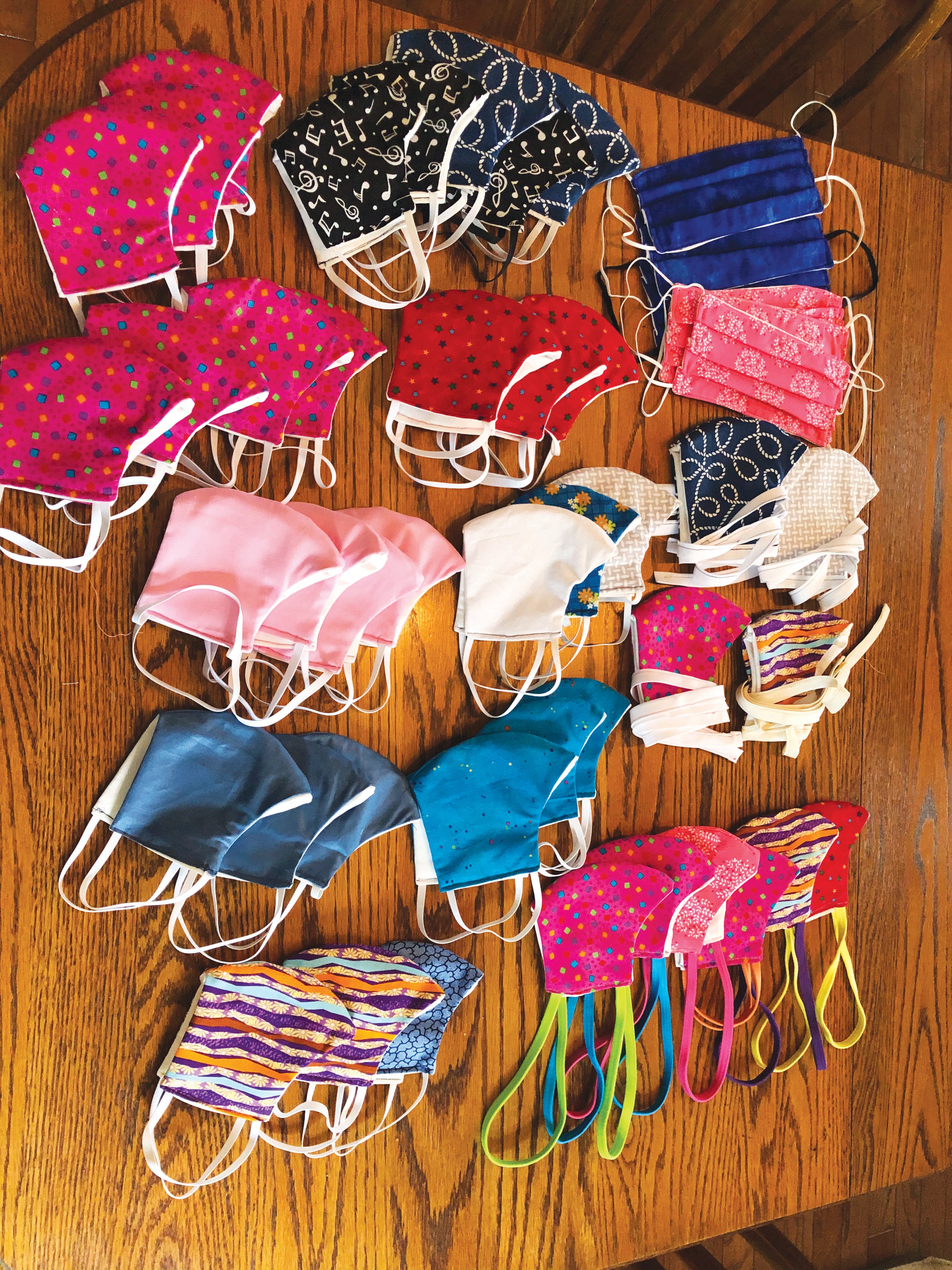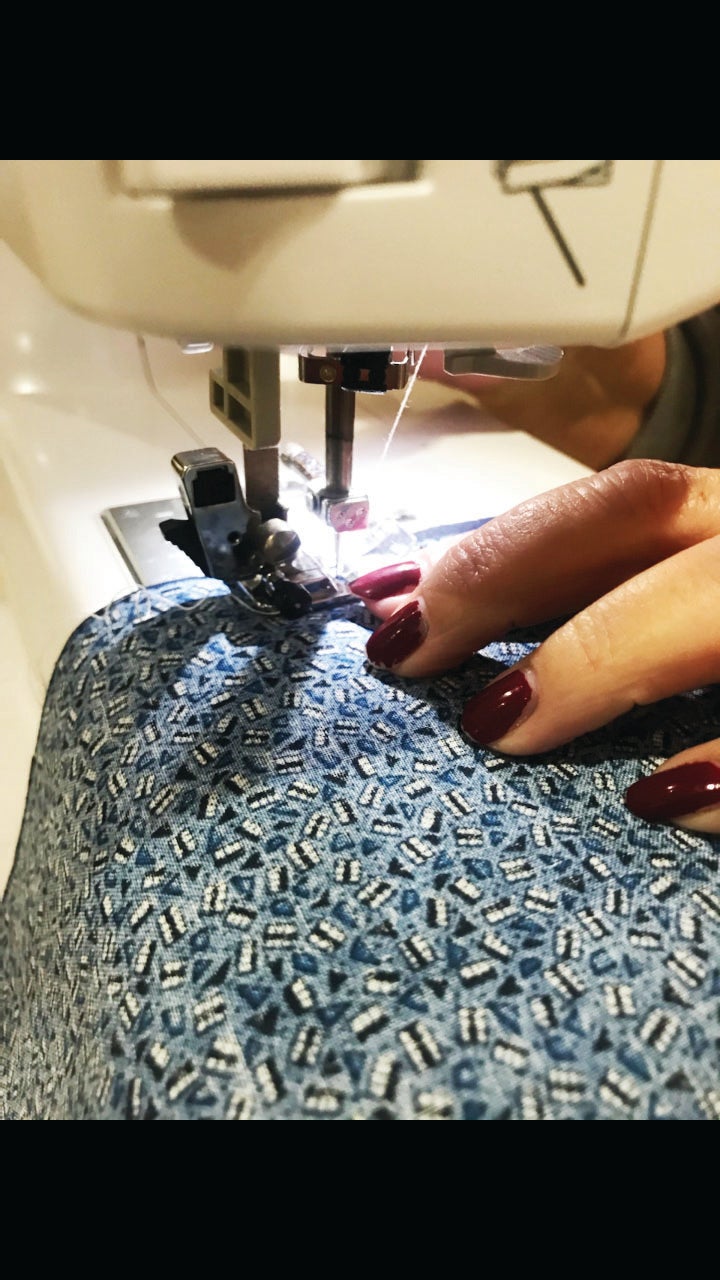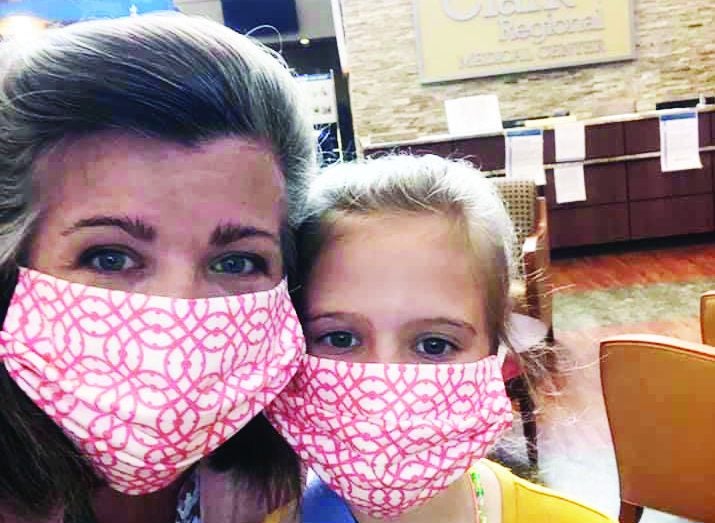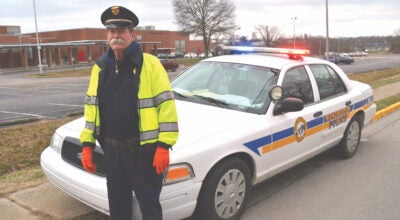One stitch at a time: Residents making face masks for neighbors
Published 6:53 pm Wednesday, April 8, 2020
|
Getting your Trinity Audio player ready...
|
Three weeks ago, Leslie Omohundro was working as a dental hygienist, wearing a protective mask as she worked face-to-face with patients on their dental care needs.
These days, though, she spends her days, along with her close friend and neighbor, Jessica Landwehr, making fabric versions of the very face mask she wore day in and day out in her health care career.
Omohundro and Landwehr are just a couple of the brigade of local women who have started fashioning fabric personal protect masks. Add to the list the likes of Patti Columbia, a local small business owner; Teresa Estes, co-owner and seamstress for Triple Crown Silks; Patricia Campbell, a cake decorator at Winchester Walmart; Mary Ann Gill, a local woman who has been doing sewing and embroidery all her life is seems, and many, many more.
As people find themselves feeling isolated, bored and helpless amid the novel coronavirus (COVID-19) pandemic, many are turning to efforts to give back to those on the front lines of the health crisis as well as their vulnerable friends, family and neighbors.
Living rooms, craft rooms and dining room tables have been turned into assembly lines for the protective masks needed to help thwart the spread of the potentially deadly virus.
For Omohundro, the mission started as a way to protect her daughter, a registered nurse at the University of Kentucky hospital.
“I was furloughed over three weeks ago,” because of the virus outbreak, Omohundro said, meaning she had time on her hands. “My daughter is an RN. I wanted to make sure that while she’s working, she has the protection she needs.”
Soon after, Landwehr joined her efforts as a way to keep her mind busy and to pay tribute to health care workers who were there for her in the most difficult time of her life.
“I lost my 21-year-old son less than a year ago,” Landwehr said. “UK hospital was amazing to him and our family while he was there. The nursing staff did everything they could.”
Landwehr has been working from home, feeling isolated and lonely, and that leaves room for grief to take over, she said.
“Free time was my enemy,” she said. “Leslie told me what she was doing, and I’ve been sewing since I was a young girl, so I thought it was a way I could keep busy and give back.”
Together, the friends had made about 150 masks as of Tuesday afternoon. They even made 30 masks for a regional domestic violence shelter.
“I have at least 75 more cut out and ready to sew,” Landwehr said in a phone interview earlier this week.
The team has had plenty of support from Teresa Estes, who said she has still been working full time as a seamstress for Triple Crown Silks, which makes silks for jockeys. Because she’s still busy with her work, Estes hasn’t been able to make as many masks herself, but she has hoards of fabric and other materials that she has been able to share with others making masks in the community.
Estes’ daughter is a combat medic in the National Guard finishing up her paramedic program, and told her mom about the shortage of supplies.
“I decided to make masks for her and her friends,” Estes said.
Her daughter has made recommendations, and helped her mom craft a pattern that works best and fits comfortably. She has shared that pattern and others with local sewers.
Estes said many health care workers are wearing the cloth masks over their N-95 respirator masks to keep them clean.
Demand for the masks for the general public is picking up, especially since the Centers for Disease Control and Prevention advised last week that everyone should wear a mask, even if they are not sick.
The CDC previously only recommended wearing a mask if you were sick, but now “recommends wearing cloth face coverings in public settings where other social distancing measures are difficult to maintain (e.g., grocery stores and pharmacies), especially in areas of significant community-based transmission.”
According to the CDC, using these simple fabric masks can help slow the spread of the virus and keep those who have the virus but do not show symptoms from transmitting it to others.
The cloth masks are made from cotton fabric, usually cut into about 10-inch by 6-inch pieces. The ear loops are made using pieces of elastic, rubber bands, string, cloth strips, ribbons or even hair ties.
Most of those making the masks in large quantities are using sewing machines, but the masks can be hand sewn, too, the CDC advises.
The CDC’s no-sew version is made using a T-shirt or even a bandana.
Patti Columbia started making masks about three weeks ago and has made “several hundred” so far. She estimates she can make about 100 masks a day, largely because she spends most of her day at her sewing machine.
“My sister-in-law is a doctor,” she said. “I have lots of friends who are nurses and my closest friend has multiple myeloma, so I wanted to make them masks to protect them.”
Since then, she has made masks for many others, because “it’s the least she can do,” in an unprecedented time.
“I never thought I’d see something like this happening in my lifetime,” she said. “I feel good that I can help do something.”
Mary Ann Gill loves to sew, and is happy she can use her skills to help others, too.
She’s been making masks for about three weeks, when a friend contacted her asking her to make masks for doctors and nurses.
“I love to sew all kinds of different things,” she said. “I’m a bit of a hoarder, so I’ve got all kinds of material and all the things I needed to make them.”
She’s made masks for groups at UK, the Veteran Affairs Hospital, Clark Regional Medical Center and Central Baptist, along with individuals who wanted or needed masks in the community. So far, she estimates she’s made about 300 masks.
“It gives me a sense of purpose,” she said. “There’s always stuff to do around the house, but I can do that anytime. This is important, and I’m glad I can do it to help.”
While Patricia Campbell doesn’t work in health care, she’s considered an essential employee for the work she does at the Winchester Walmart, so masks are important in her line of work, too.
“I decided to do my part to help others fight the coronavirus,” she said. “I have always been a creative person and this is a great way to use my talent to help others.”
She makes about 25 masks a week and has requests for more than 80 others.
Each of the women use care and caution when getting the masks to those in need. They still practice social distancing by leaving the masks to be picked up usually on their front porches. Most put the masks in zipper-sealed bags.
None of the women interviewed for this article are charging for their masks, but many said they could use donations of materials to continue their mission. Most are in need of cotton fabric and elastic.
Each is thankful they can use what is a dying craft to help in a time of need.
“I love that this is something I can do,” Estes said. “I’m thankful I can use my God-given talent to support people who have a need.”


